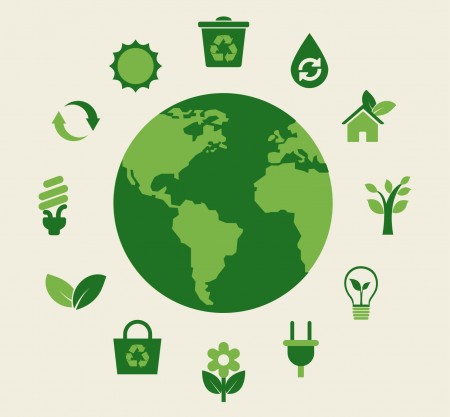 Do you have a pile of empty glass bottles lying around? Why not make a ring-toss game out of them? Don’t know what to do with your old computer disks and cassette tapes? Add some pegs and make a Plinko board. Those are just some examples of how U of G’s Sustainability Office recycles items that would otherwise end up in a landfill.
Do you have a pile of empty glass bottles lying around? Why not make a ring-toss game out of them? Don’t know what to do with your old computer disks and cassette tapes? Add some pegs and make a Plinko board. Those are just some examples of how U of G’s Sustainability Office recycles items that would otherwise end up in a landfill.
Starting Feb. 8, U of G will participate in RecycleMania, an annual competition between Canadian and American colleges and universities that challenges them to recycle the most waste.
“It’s a challenge but also a way for all of us to self-improve and have some fun.” says Paul Caruso, recycling co-ordinator at the Sustainability Office.
The competition consists of a variety of activities in which schools try to recycle the most of a particular material, such as paper, cardboard, cans and bottles, and food service organic waste per capita. The winner will be announced April 15 and receives a trophy made of — what else? — recycled materials.
The University currently produces about 2,000 metric tons of garbage and 450 to 500 metric tons of recyclable materials annually, says Caruso. Another 1,000 metric tons of manure are delivered to a local farm for composting. The University’s goal is to boost its waste diversion rate from 45 to 60 per cent through increased recycling and composting.
Plans are underway to expand composting of cafeteria waste on campus, he adds. “We’re going to be doing some more work in our cafeterias to make it easier to sort.”
One way you can help the University meet its waste diversion goals is to try to go waste-free for a week. Participants will tweet about their experience in March, followed by a workshop at the end of the month.
“I’ve tried that before,” says Caruso of the waste-free challenge. “It opens your eyes to the stuff we buy” and the packaging it comes in.
The Sustainability Office will host a waste reduction workshop Feb. 9. “You can hear about what waste is, what the impact of waste is and how we can reduce it,” says Caruso.
Hazardous items such as batteries and lightbulbs can be dropped off at the Sustainability Office, Central Student Association Office or residence desks. The Sustainability Office also collects electronic waste. When in doubt, contact recycle@pr.uoguelph.ca or visit www.uoguelph.ca/sustainability.
“People always wonder if it’s worth the effort,” says Caruso. “It’s always worth the effort to recycle. It’s a great way to give back to our community.”